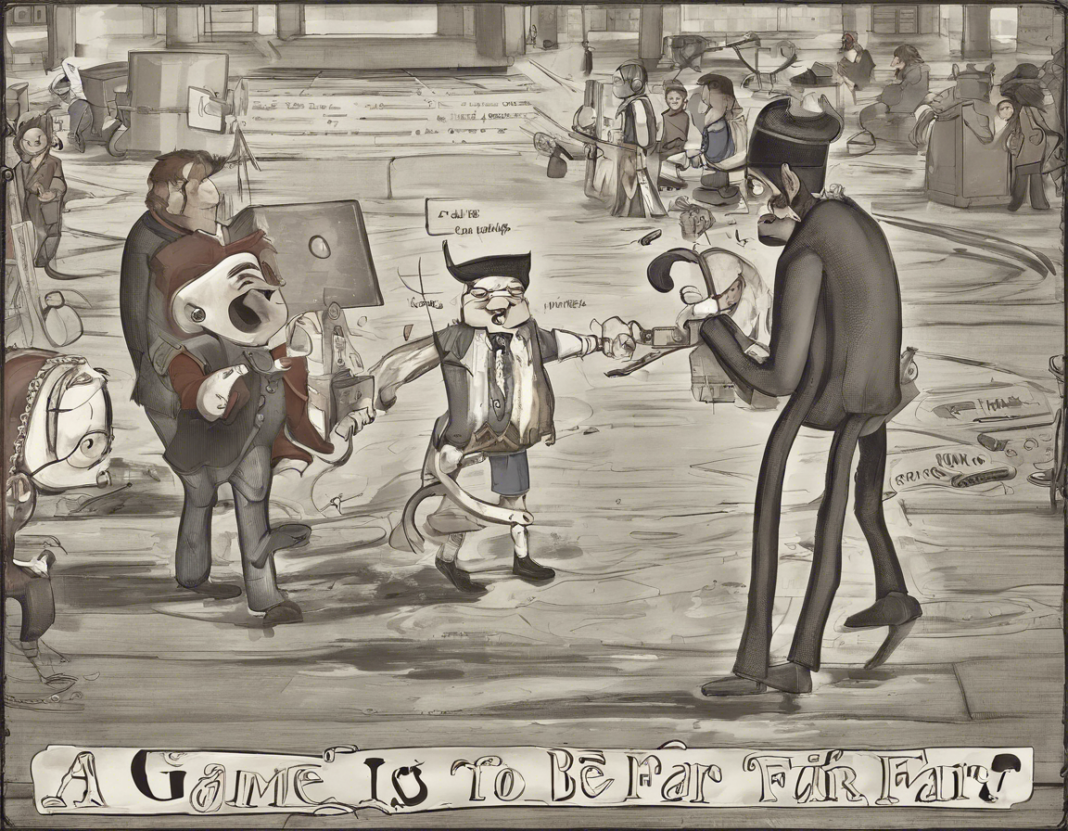In the world of video games, fairness and justice are paramount concepts that can either make or break a game in the eyes of its players. When players feel that a game is fair and just, they are more likely to enjoy it, invest time and money into it, and recommend it to others. On the other hand, when a game is perceived as unfair or unjust, it can lead to frustration, anger, and ultimately, the loss of player interest. So, what exactly makes a game fair and just? Let’s delve into the key elements that contribute to fairness and justice in games.
Balanced Gameplay
One of the crucial aspects of fairness in games is balanced gameplay. This means that all players have an equal opportunity to succeed based on their skill level, rather than external factors such as pay-to-win mechanics or luck. Games that are well-balanced provide a level playing field where players can compete or collaborate on an equal footing.
Game Design
Game design plays a significant role in ensuring fairness and justice in games. Game developers must carefully consider factors such as character abilities, weapon strengths, level designs, and game mechanics to create a balanced experience for all players. Imbalances in these elements can lead to frustration and dissatisfaction among players, as they may feel that winning or losing is predetermined rather than based on their skill.
Matchmaking Systems
Matchmaking systems are essential for ensuring fair gameplay, especially in multiplayer games. These systems pair players with others of similar skill levels, ensuring that matches are competitive and enjoyable for all participants. Without a robust matchmaking system, players may find themselves pitted against opponents who are much stronger or weaker, leading to an unfair playing field.
Transparency and Communication
Another critical aspect of fairness and justice in games is transparency and communication. Players should have access to clear information about game mechanics, rules, and updates to make informed decisions. Additionally, developers should communicate openly with players about changes to the game, upcoming events, and any issues that may arise.
Patch Notes
Providing detailed patch notes is one way that developers can demonstrate transparency and keep players informed. Patch notes outline the changes made to the game, including bug fixes, balance adjustments, and new features. By sharing this information, developers show that they are listening to player feedback and working to improve the game for everyone.
Community Engagement
Engaging with the community is another critical aspect of transparency in games. Developers can interact with players through forums, social media, live streams, and in-game events to gather feedback, address concerns, and foster a sense of community. When players feel heard and valued, they are more likely to trust that the game is being managed fairly and justly.
Anti-Cheating Measures
Maintaining a cheat-free environment is essential for upholding fairness and justice in games. Cheating undermines the integrity of the game and creates an unfair advantage for those who engage in dishonest practices. Developers must implement robust anti-cheating measures to detect and prevent cheating, such as detecting unauthorized software, monitoring player behavior, and issuing bans to cheaters.
Fair Play Policies
Establishing clear fair play policies is crucial for maintaining a cheat-free environment. These policies outline what behaviors are considered cheating, the consequences for engaging in such behavior, and the steps players can take to report cheaters. By enforcing fair play policies consistently and transparently, developers can create a safer and more enjoyable gaming environment for all players.
Inclusive and Diverse Representation
Fairness and justice in games also extend to inclusive and diverse representation. Games should strive to represent a wide range of experiences, cultures, and identities to ensure that all players feel seen and valued. This includes diverse character designs, storylines, and settings that reflect the rich tapestry of the real world.
Representation Matters
Representation matters in games because it allows players to see themselves reflected in the virtual worlds they inhabit. When players encounter characters who look like them, share their experiences, or challenge stereotypes, it can foster a sense of belonging and empathy. Games that prioritize inclusive and diverse representation are more likely to resonate with a broader audience and promote understanding and acceptance.
Frequently Asked Questions (FAQs)
1. How can I tell if a game is fair and just before playing it?
– You can research online reviews, forums, and social media to gauge the community’s perception of the game’s fairness.
2. What should I do if I encounter cheating in a game I play?
– Report the cheating behavior to the game developers through their designated channels, such as reporting features or customer support.
3. Are pay-to-win mechanics considered unfair in games?
– Pay-to-win mechanics can create an uneven playing field and are often perceived as unfair by players who cannot or do not want to spend money to gain advantages in the game.
4. How do game developers ensure that their games are balanced for all players?
– Game developers conduct playtesting, analyze player feedback, and make iterative adjustments to the game’s mechanics to achieve balance.
5. Why is representation important in games?
– Representation in games reflects the diverse experiences and identities of players, promotes inclusivity, and encourages empathy and understanding.
In conclusion, fairness and justice are integral to creating enjoyable and engaging gaming experiences. By prioritizing balanced gameplay, transparency and communication, anti-cheating measures, and inclusive representation, game developers can cultivate a gaming environment where all players feel respected, supported, and valued. Ultimately, fostering fairness and justice in games benefits not only players but also the gaming industry as a whole.






